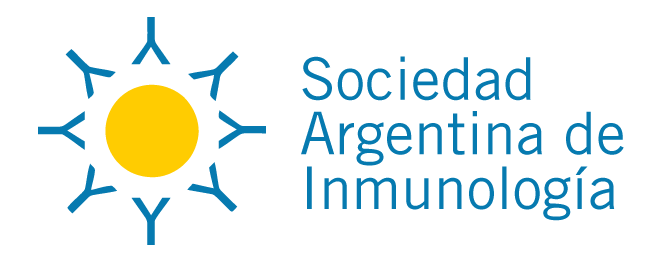Postdoctoral position in onco-immunology
Postdoctoral position in onco-immunology
A NOVEL IMMUNE CHECKPOINT THERAPY COMBINED WITH VESSEL NORMALIZATION FOR DIGESTIVE CANCERS
Mondor Institute for biomedical research UPEC/Inserm U955 team Immunoregulation and Biotherapy, José Cohen and Ilaria Cascone
RESEARCH PROJECT
Our project aims to understand the mechanisms that lead to the blockade of the anti-tumor immune response in order to identify new targets and to develop combined innovative therapeutic approaches.
A postdoctoral position is available to work specifically on pancreatic cancers (PC) that do not respond to immunotherapies with the aim to develop combined therapeutic approaches based on the team’s expertise. Indeed, our recent works demonstrated that TNFR2, a TNF-receptor was preferentially expressed by regulatory T cells and that blocking this pathway resulted in Treg non-functionality (Leclerc et al. Blood 2016). We also recently identified and developed a nucleolin antagonist that normalizes pancreatic cancer tumor vessels thus favoring immune cell infiltration and activation (Diamantopoulou, Oncotarget 2017, Gilles Cancer research 2016).
The key question addressed by the Postdoc will be to understand why PD1/PDL-1 or CTLA4 immune checkpoint inhibitors (ICIs) that have some beneficial effects in melanoma or lung cancers are inefficient in digestive cancers and notably in PC. Preclinical and clinical evidences suggest that only patients who have T-cell inflamed tumors respond to ICI monotherapy. Endogenous tumor-reactive T cells present within the human PDA tumor microenvironment have to be reactivated. However, ICIs failed in PC and one reason could be the highly immunosuppressive tumor microenvironment leading to exclusion of cytotoxic T lymphocytes from the tumor. Tumor vessels display abnormal structure and function with seemingly chaotic organization. In addition, in tumors with abundant stroma such as pancreatic ductal adenocarcinoma, vessels are compressed due to high interstitial pressure exerted by the extracellular matrix. All these factors result in poor tumor perfusion leading to impaired oxygen, nutrient, and drug delivery. This favors immunosuppressive cells, and resistance to activated cytotoxic T-cells infiltration and immunotherapy.
After having characterized in detail the tumor microenvironment of pancreatic cancers in mice, the Postdoc will have to test new therapies combining strategies for normalizing tumor vessels and inhibiting T cell immunosuppression. The successful candidate will apply the new strategies developed by the team and will propose new target candidats.
CANDIDATE
Education: MD/PhD or PhD in Oncology-Immunology.
Field of interest: The candidate must have a strong interest in basic and translational research. Immunologist by training, she/he will have preferably worked in the field of cancer and particularly on the tumor microenvironment. Additional interest for big data processing and bioinformatics will be considered with priority.
Expected skills. The candidate will have a strong expertise in multiparametric cytometry, in cell culture and sorting, in immuno-histology and confocal microscopy. She/he will be familiar with tumor experimental models in mice and therefore their manipulation. Previous experience in bioinformatics will be a plus. The candidate must be able to write grants and scientific articles in English.
DESCRIPTION OF THE TEAM
The main objectives of the team is to identify new mechanisms and therapies that i) inhibit immune response in transplantation to promote immune tolerance thus preventing organ rejection or GVHD and ii) improve sensitivity of anti-cancer immunotherapy through manipulating the tumor microenvironment (TME). Our work has been mostly performed in mice but was also translated in several clinical trials in both transplantation and cancer. An important limitation we are facing in the development of anti-cancer therapy approaches is due to insufficiently relevant and easy to operate experimental models. We developed unique models allowing evaluating human tumor growth confronted to an immune system syngeneic to the tumor. We are working in close interactions with clinical departments and are leading the center for clinical investigation in biotherapy, a platform dedicated to early phase clinical trials developed in our research team.
If relevant, the team is willing to support the candidate for the researcher recruitment competitions at Inserm.
The candidate will access to 4 technological platforms (genomics, imaging, flow cytometry and functional exploration of small animals), as well as a common animal facilities allowing to host wild type and transgenic rodents. A new high-throughput sequencing platform, combined with bioinformatics platform, is currently under organization.
FINANCIAL SUPPORT
Type of contract: Temporary
Funding: Institut National du Cancer (INCA)
Employer: INSERM U955
Availability: immediate
Contract duration: 12 months to 3 years
HOW TO APLLY
Applicants should send their CV, list of publications, research summary and the names of two references to José Cohen (jose.cohen@inserm.fr) and Ilaria Cascone (ilaria.cascone@u-pec.fr)


